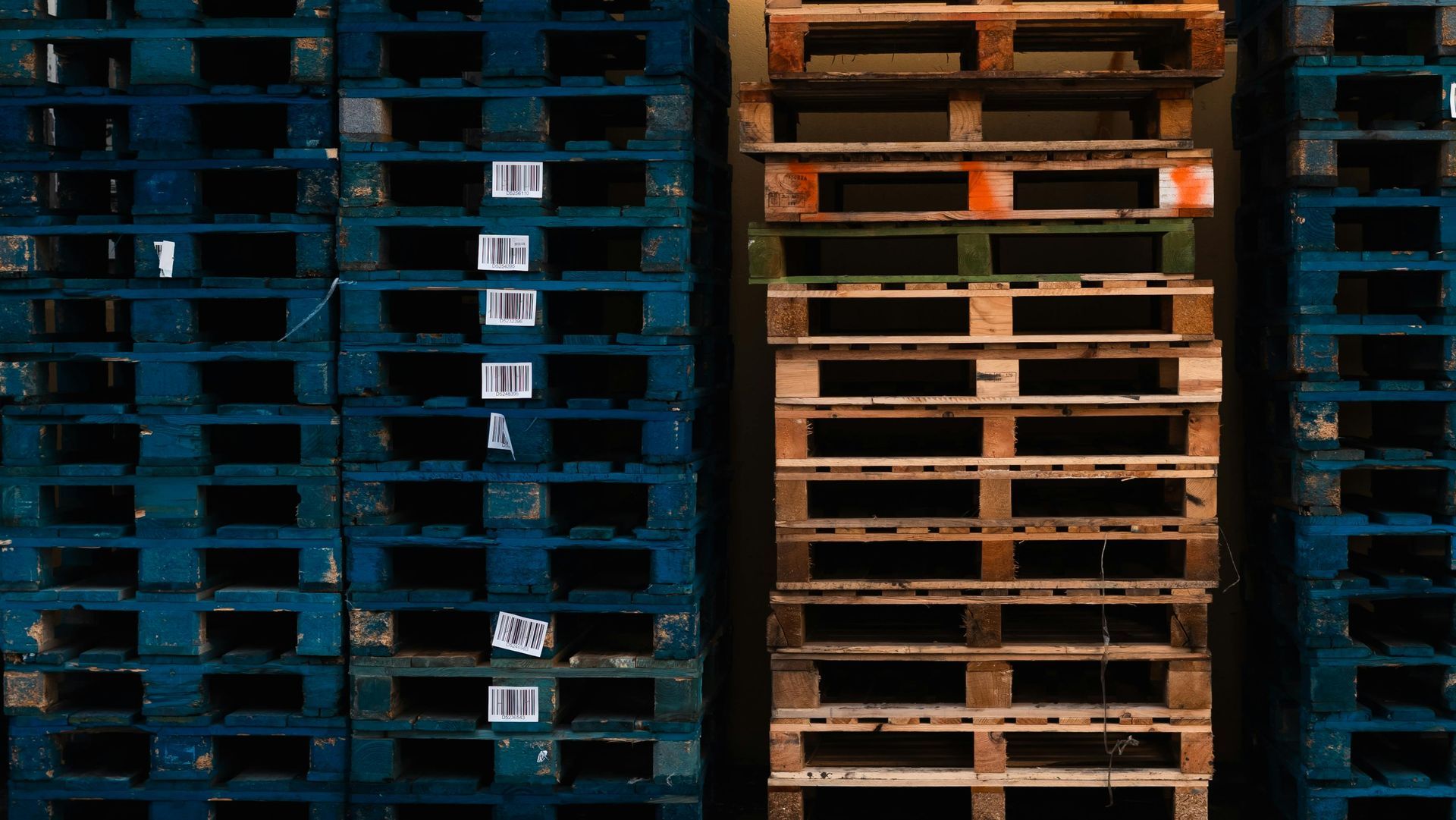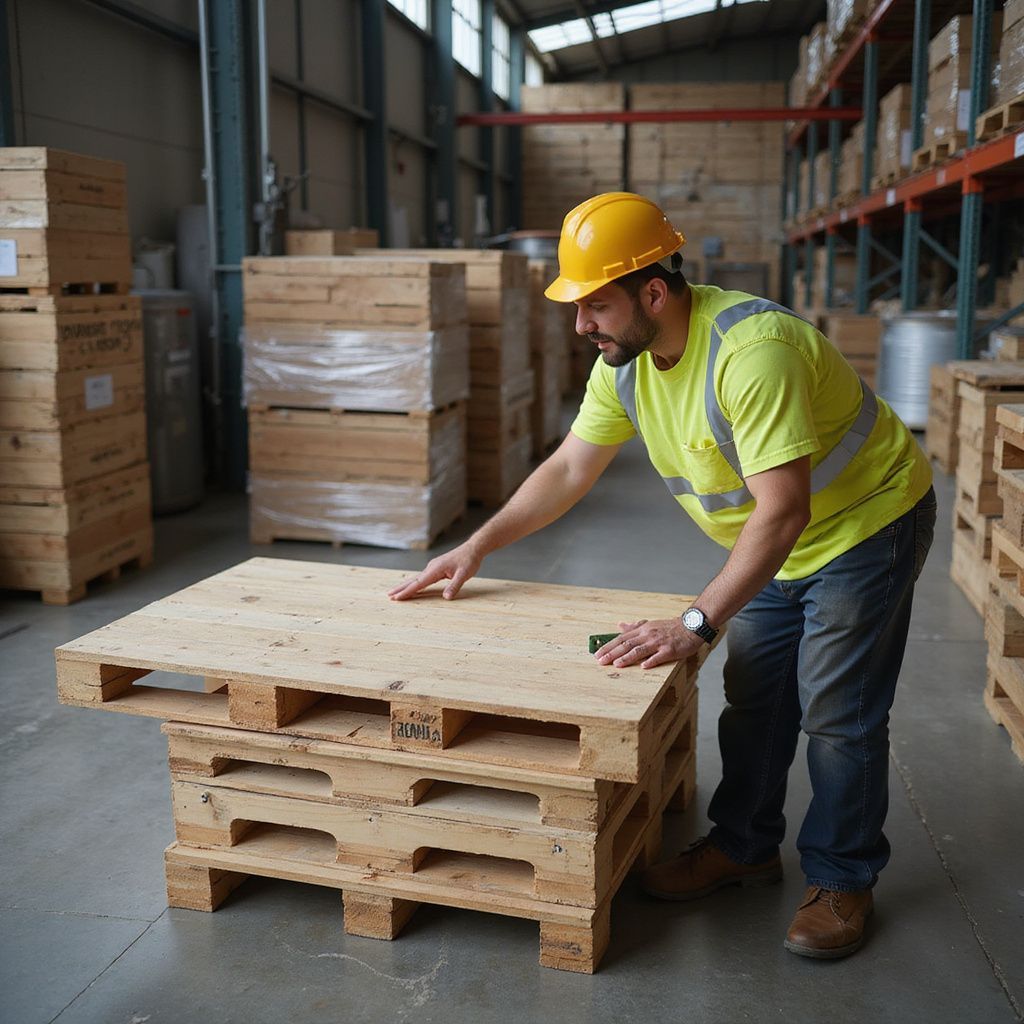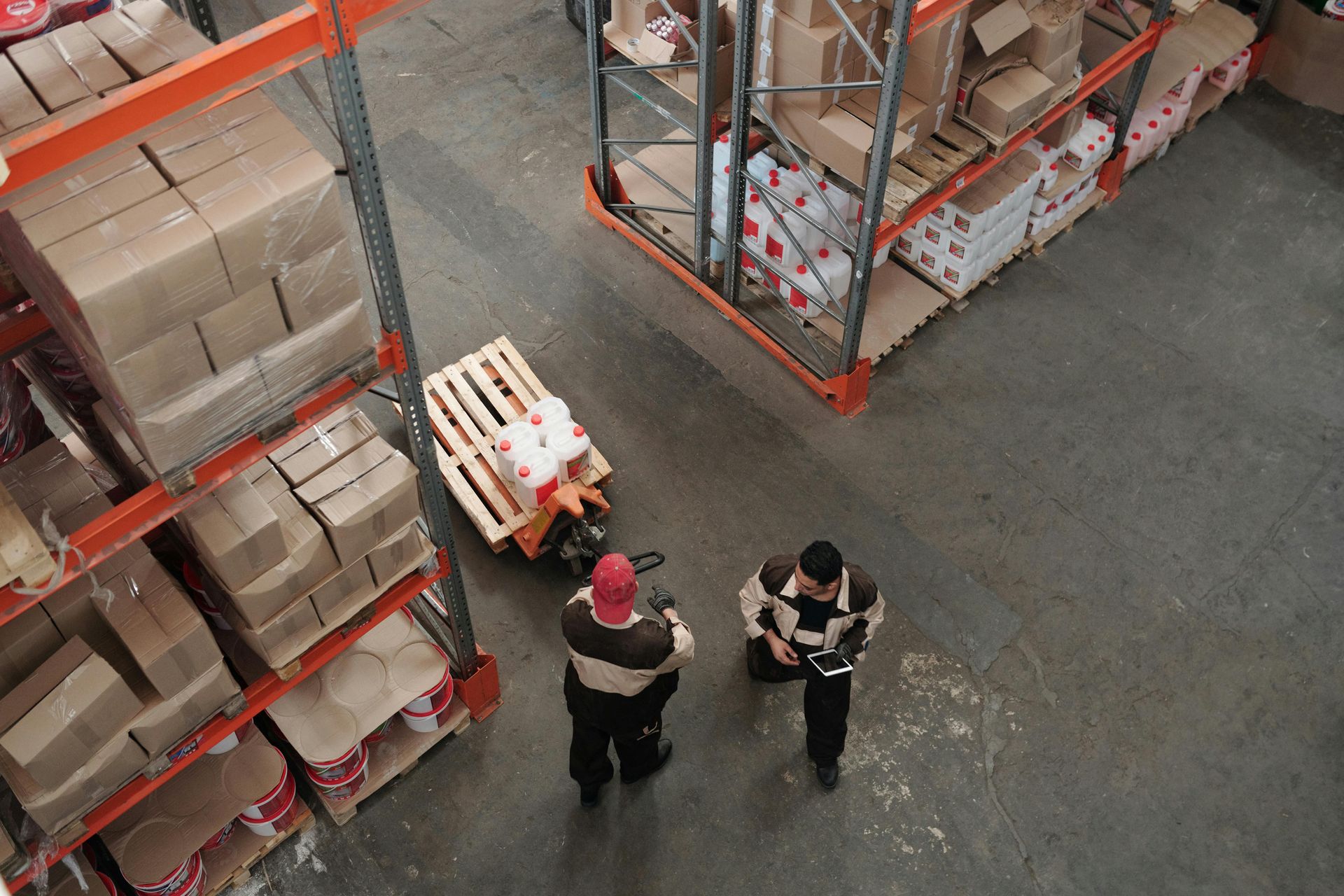Understanding ISPM-15 & Heat-Treated Pallets
Every year, billions of dollars' worth of goods are delayed, quarantined, or destroyed, not because of what's inside the box but because of what's under it.
Many countries have strict guidelines and standards regarding the type of wooden pallet you choose, which means this one decision could determine whether your shipment sails smoothly or stalls at customs.
Unsurprisingly, not all pallets manufactured and sold meet these international regulations. Luckily, the International
Standard for Phytosanitary Measures
No. 15 (ISPM-15) certification helps to clarify the specifications of pallets suitable for international transport.
This helpful guide outlines ISPM-15, why heat treatment matters, and how businesses can stay compliant.
What is ISPM-15?
The International Standard for Phytosanitary Measures No. 15 (ISPM-15) regulates wood packaging material in international trade.
This regulation requires solid wooden packaging materials thicker than 6mm to be heat-treated or fumigated to prevent the spread of pests and diseases across borders. ISPM-15 applies to wooden pallets, crates, dunnage, and packaging moving across borders.
Exceptions are made for materials like plywood, particleboard, and cardboard since they've already been processed and are considered low risk.
Today,
more than 180 countries require ISPM-15 compliance. If your pallet isn't compliant, your goods can't legally enter, or sometimes even leave, the country. In short, ISPM-15 isn't a suggestion. For companies engaged in international trade, it's a non-negotiable requirement.
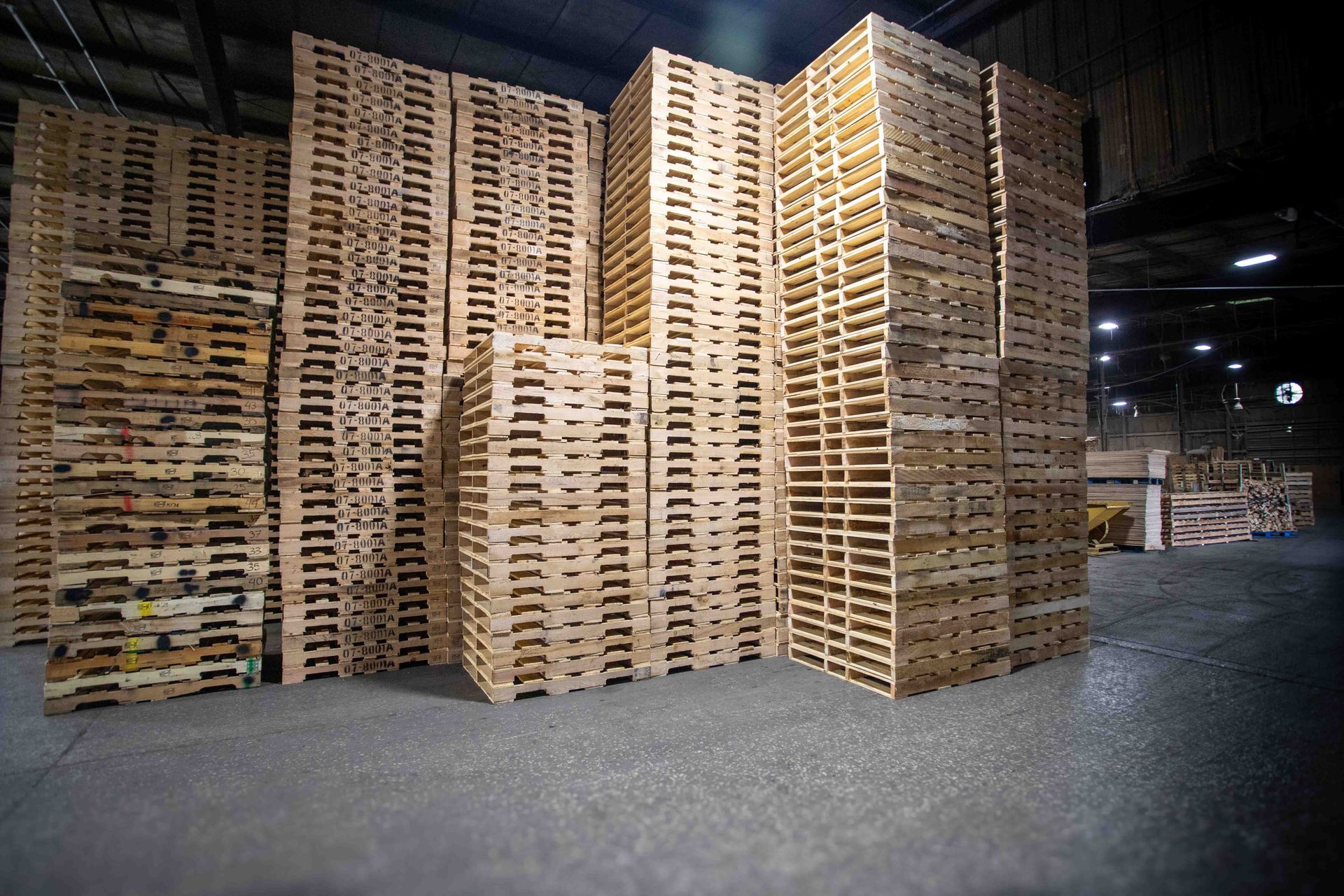
Why Does Heat Treatment Matter?
So, how do pallets meet the ISPM-15 standard? The most common and accepted method is heat treatment (HT).
Here's how it works: Pallets are placed in a specialized kiln, where heated air circulates until the wood's core temperature reaches 56°C (133°F) for at least 30 continuous minutes.
This process eliminates harmful insects, larvae, fungi, and pathogens that could otherwise travel across borders. The entire procedure is digitally monitored and documented to ensure compliance.
Heat treatment is environmentally sustainable, safe for workers, and accepted worldwide. Best of all, it doesn't weaken or damage the wood, meaning pallets remain as strong and durable as untreated ones.
Because the treatment penetrates the entire pallet, the compliance lasts for the life of the pallet, provided it stays in good condition.
How to Identify ISPM-15 Compliant Pallets
When shipping products across borders, the pallet beneath the goods is just as important as the packaging around them. But how do you know if a pallet is truly export-ready?
The answer lies in the ISPM-15 mark.
Every compliant pallet is branded with a clear, permanent stamp that provides four pieces of information.
- The IPPC symbol: the wheat-stalk logo that shows the pallet meets international phytosanitary standards.
- Country code: a two-letter code (such as "US" for the United States or "CA" for Canada) identifying where the pallet was treated.
- Unique producer/treatment number: assigned to the certified facility that performed the treatment.
- Treatment method code: typically "HT" for heat-treated or, less commonly, "MB" for methyl bromide fumigation (though this type of treatment has essentially been phased out due to health and environmental concerns).
It is important to note that the mark is usually burned or stamped into the wood, never removable stickers or ink that rubs off. If a pallet lacks this mark, it is not a compliant pallet, even if it was previously treated.
For shippers, the takeaway is simple:
only source pallets from certified suppliers. Doing so ensures your pallets carry the proper marks, your goods pass smoothly through customs, and you avoid the costly risks of delays or rejections.
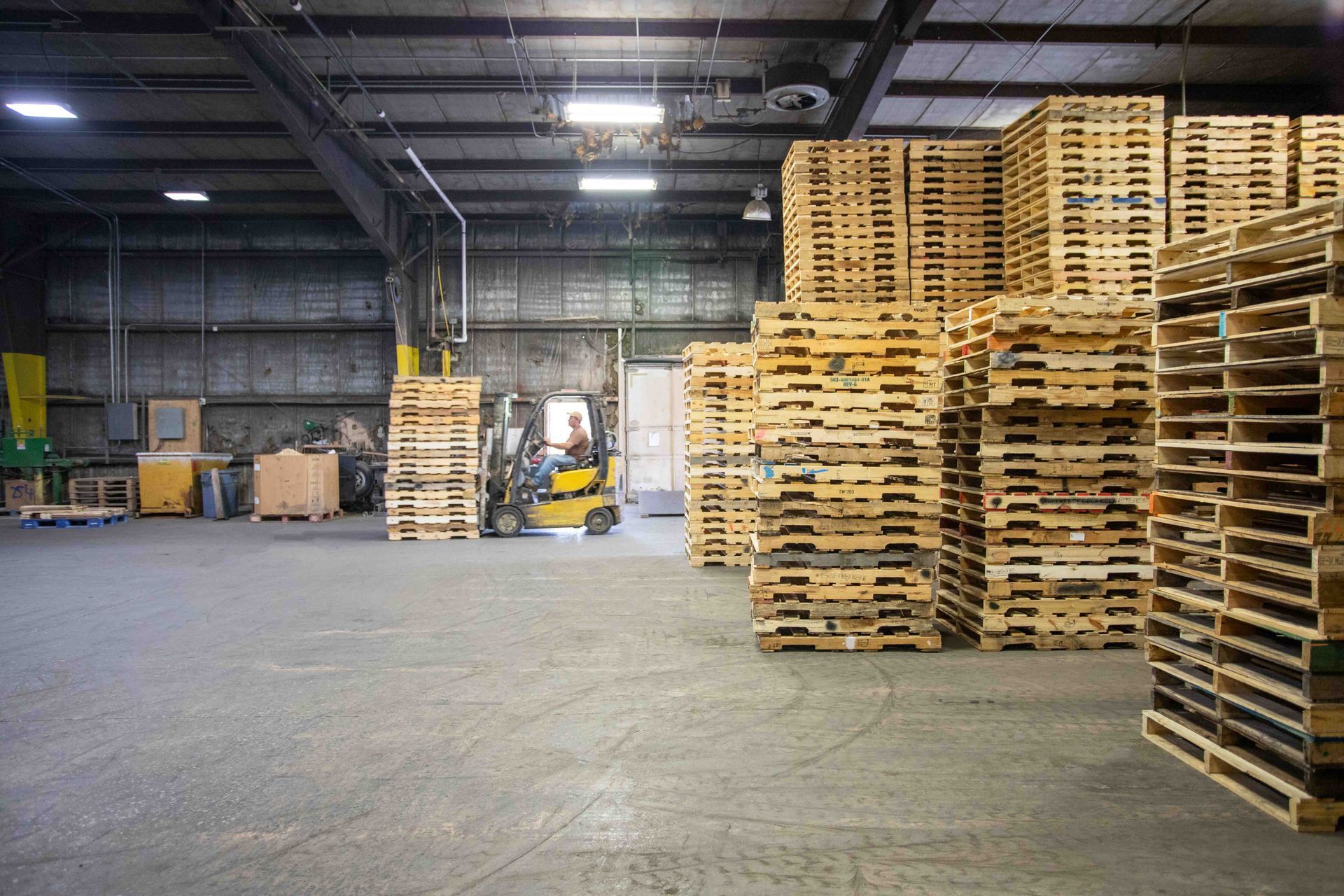
Risks of Non-Compliance
The consequences of non-compliance can be severe. If your shipment arrives at customs with untreated or unstamped pallets, officials have the right to initiate their respective protocols.
- Quarantine the goods.
- Order the pallets re-treated or destroyed.
- Reject and return the shipment at your expense.
- Impose fines and penalties.
Beyond the immediate costs, non-compliance can damage relationships with customers who expect on-time deliveries. A single oversight can tarnish your reputation and disrupt supply chains.
Real-world cases show that millions of shipments have been delayed or destroyed simply because the pallets didn't meet ISPM 15 standards.
How Global ICB Ensures Compliance
At Global ICB, compliance isn't an afterthought; it's built into everything we do.
Our pallets undergo certified heat treatment using state-of-the-art facilities that meet all ISPM-15 requirements. Each pallet is stamped with the proper IPPC mark, ensuring it's export-ready.
Contact us today to learn more about our heat-treated pallet solutions and how we can keep your operations moving smoothly.


